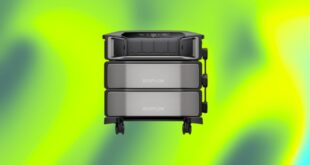Snapchat has always embraced AI, whether by releasing its own AI chatbot or its real-time AR effects that use generative AI. Most of the features are fun and harmless. However, the My Selfie feature within Snapchat automatically enrolls you into allowing your My Selfie data to be used in marketing materials.
The My Selfie feature tells you of its intentions during setup, but it’s pretty easy to skip over it and continue through the process. The screen explaining the feature doesn’t pop up until near the end of the process, when you’ve already taken a selfie and given Snapchat other images. 404 Media found an example of someone’s likeness being used in an advert on Reddit.
“My Selfie is used to power Generative AI, Cameos, and other experiences on Snapchat that feature you, including ads,” the warning reads. “By tapping Agree & Continue, you agree to the My Selfie Terms and give Snap and your Friends permission to use your likeness and My Selfies on Snapchat.” The verbiage is repeated on Snap’s support website.
A representative for Snapchat did not immediately respond to a request for comment.
Read more: I Tried Snap’s New Standalone AR Glasses, Which Do Mixed Reality, AI and Work Outdoors
You can prevent Snapchat from using your My Selfie data in ads in a few short steps.
You can prevent Snapchat from using your My Selfie data in ads in a few short steps. The setting is enabled by default, likely because you have to agree to the terms when setting up My Selfie to begin with. Here’s how to turn it off.
- Open Snapchat on your phone.
- Tap your profile picture in the top left corner.
- Tap the gear wheel in the top right corner.
- Scroll to the My Selfie setting and tap it.
- Uncheck the box that says See My Selfie in Ads.
You can also use this section of the menu to manage your My Selfie data in other ways, including preventing people from using it in Cameos and AI snaps. For added privacy, you can also set your My Selfie data to only be usable by friends, best friends, only you, or you can customize specifically who’s allowed to use it. You can also delete it from that menu if you don’t want to use the feature.
 synnbiob
synnbiob


